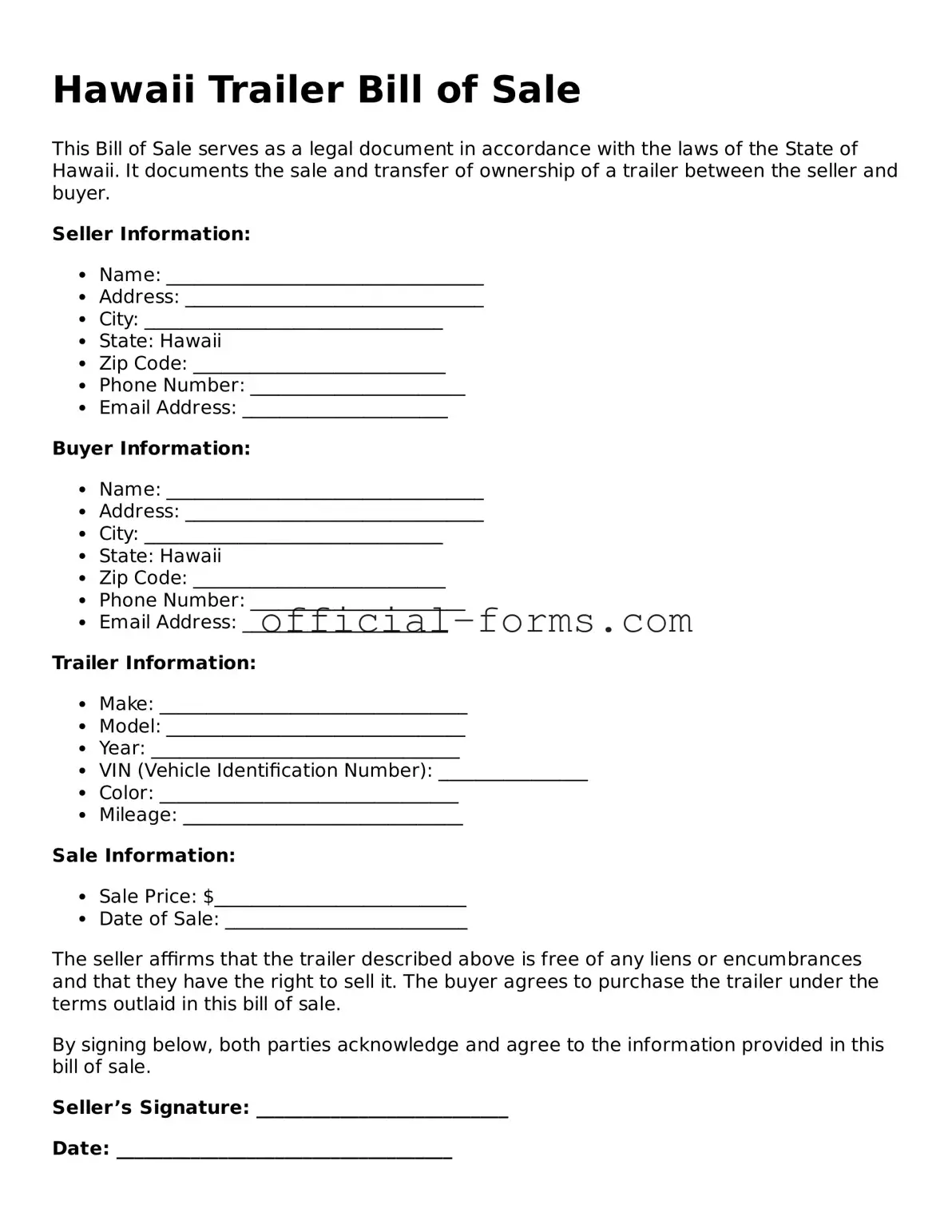Filling out the Hawaii Trailer Bill of Sale form can seem straightforward, but many people make common mistakes that can lead to complications down the line. One frequent error is failing to provide accurate vehicle identification numbers (VINs). The VIN is crucial for identifying the trailer and ensuring that the sale is legitimate. If the VIN is incorrect, it can create confusion and potential legal issues later.
Another mistake often made is neglecting to include the correct names and addresses of both the seller and the buyer. This information is essential for establishing ownership and accountability. Incomplete or incorrect details can cause problems when registering the trailer or if disputes arise in the future.
Many individuals also overlook the importance of including the sale price. While it may seem obvious, leaving this section blank or writing an inaccurate amount can lead to misunderstandings. The sale price is not only a record of the transaction but may also have tax implications.
Some people fail to date the form properly. The date of the sale is important for legal purposes, including determining when the buyer officially takes ownership. An undated or incorrectly dated form can complicate matters if there are any disputes or if the buyer needs to prove ownership.
In addition, forgetting to sign the form is a common oversight. Both the seller and the buyer must sign the Bill of Sale for it to be valid. Without signatures, the document lacks legal standing, and ownership cannot be transferred effectively.
Another mistake is not providing a thorough description of the trailer. This includes details like make, model, year, and color. A vague description can lead to disputes over what was actually sold, especially if there are similar trailers involved.
People sometimes fail to understand the importance of keeping a copy of the completed Bill of Sale. After the transaction, both parties should retain a copy for their records. This serves as proof of the sale and can be helpful in future transactions or disputes.
Lastly, individuals may not check for any liens or outstanding loans on the trailer before the sale. If the trailer has a lien, the seller must address it before transferring ownership. Failing to do so can result in legal complications for the buyer later.

